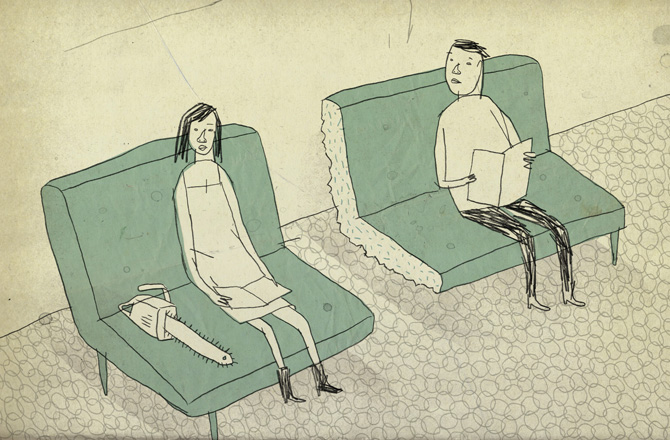
Navigating Relationships With Grandparents in a Divorce
Last Friday’s quandary was simple and direct: how to keep grandparents in children’s lives following a divorce?
Readers had many success stories, and from them, I tried to pull out the best, most workable moments of advice — and ones that didn’t depend on having a close relationship with a soon-to-be former in-law to begin with. “Have a civil divorce” also seemed like the kind of advice that’s easily given, but not always easily taken. Realistically, in some ideal, perfectly friendly divorce with shared custody and everything as good as it can possibly be, this isn’t even a question.
But what if things are not so rosy? The goal is to keep the children and grandparents in the family regardless of the parents’ differences. Readers’ suggestions for getting there, tidily tucked into a nice neat list for what may not be such an ordered endeavor, follow.
1. Figure out your own relationship with your ex’s parents.
Golf Widow and Erda are lucky enough to have close relationships with their children’s paternal grandmothers and advocated keeping it that way, if possible. Visits to your ex’s parents? If you’re comfortable, go with it. Coffee, e-mails, texts are great. But if you’re not, writes Golf Widow, “now would be the time to depersonalize on behalf of the children.” Roberab, who wasn’t lucky enough to have parents who could navigate a this tricky relationship, writes:
Don’t let whatever emotions you might have to your husband spill over to the rest of his family. No matter how tight lipped you think you are being, your children will sense it if you secretly (or not so secretly) blame your ex in-laws for your ex’s issues.
2. Keep the lines of communication open.
Brynn “made it clear that [her daughter’s paternal grandmother] had full access to her granddaughter no matter what was going on between her son and me, and that she could always call me directly.” On the grandparent side, Jan Bone writes that for her, that’s included a financial contribution: her grandson’s mother “is listed on one of my credit cards as an authorized buyer. She has never abused the privilege — either during the marriage and now the divorce and post-divorce — and buys only clothes for the growing teen and stays within a $ limit I have set when she shops for him.”
3. Issue invitations.
“Sure, it would be nice if an ex-spouse took the lead in making certain that his or her parents were invited to graduations, to concerts, to school “Grandparents Day,” but if he or she doesn’t, do it anyway. And, writes Beth, “do not limit time with the paternal grandparents to when the kids are with their dad.”
4. Be aware of the kids’ needs.
Kathryn, a divorce attorney, suggests taking a realistic view of inviting everyone for a holiday or school event when relations are strained. If it’s not the best thing for your child, try for more visits under different circumstances, she writes. “Sometimes children do not like seeing their parents with new spouses and the grandparents all together. It is very confusing, especially for teenagers. Better to have them spend time one-on-one for otherwise they really just shut down and tolerate the ‘show.’ ”
5. Be open to surprising changes.
My mother-in-law and I had a very tough time of it before and during my marriage to her son — different cultural expectations and languages stood between us. But, somehow, we managed to reach out to each other after my divorce and managed, by the time she died, to build a strong, loving relationship. The key was that we were both able (after plenty of missteps) to put our mutual love for my son front and center. We didn’t do things perfectly but I am so thankful that we made the effort — it means that I can give my son all sorts of stories about his grandmother and how much she loved him (and all of us).
In short, it’s about daring and trusting enough (on both sides) to nurture and make possible that grandparent/child relationship.
If you have more advice for keeping grandparents and grandchildren close during a divorce — even when things aren’t ideal, when one parent has custody, when distance and distant relationships are involved — please,get in contact with Resolution Partners, Anne Purcell
Credit: J DELL’ANTONIA
Share this story

